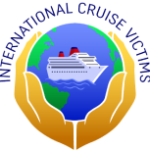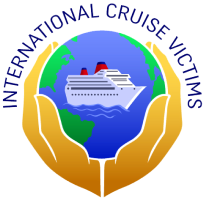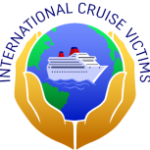Over fifty of my family members set sail on the Carnival Conquest for a weeklong reunion in the Caribbean on April 14, 2013. Until April 18, Violet Butler, my fifty-one year old mother, was active, enjoyed the cruise, and showed no signs or symptoms of any underlying medical issue. She had a physical a few weeks before we departed on the Conquest and was cleared with a clean bill of health.
On April 18, our family went ashore at George Town, Grand Cayman, for a short excursion. After an amazing day, we grabbed a quick burger and boarded the shuttle boat back to the cruise ship.
Once back on board, we walked straight through security with several other passengers. Violet was discussing what to wear to dinner that night for family pictures. She reached over to collect her beach bag, took three or four steps, and collapsed in mid-sentence.
After collapsing, she was not breathing and had no pulse. I ran for help immediately, and pleaded with the security team for help, but they appeared to be unable to understand English. They had a radio, but did not make any effort to assist or summon help. Instead, they focused on barricading the door and hallways to prevent people from seeing what was happening.
I then ran down corridors desperately seeking medical personnel or someone to help me communicate the urgency of the situation to the guards. My father was kneeling by her body, trying to get her to regain consciousness. Violet’s bathing suit was slipping off, so he was also trying to keep her modestly covered.
After what seemed an eternity, but was probably 12 to 15 minutes, medical help did arrive. The lady who got there first checked Violet’s vitals but did not initiate CPR. She had a radio but no medical equipment. When the rest of the medical team arrived, they loaded Violet on a gurney and took her to their medical facility.
The facility was around the corner, less than a hundred feet away. The office, however, was closed. Dad and I waited with Violet while the door was unlocked and lights and computers were turned on. A defibrillator was locked inside of the infirmary instead of being publically displayed for emergency passenger use.
After what seemed to be another 3 or 4 minutes, Violet was taken into the examination room. I was asked to accompany her into the examination room to remove her jewelry and, to my surprise, insert an IV in her leg. My father was detained in an outer office to sign “important papers,” copies of which he was never given. They were not medical documents.
The medical team began shocking her heart, followed by 2 minutes of CPR. They had to repeat this protocol four times before her heart began to beat on its own. By now it was nearly 30 minutes since she collapsed. About this time, the ship’s doctor returned from shore excursion and was briefed on what happened. He inquired if she was stable enough to be moved into an ambulance on shore, and was told that she was.
My dad and I were told we had to leave the ship and were given no alternative. Dad was instructed to pack everything and empty their room. I was still with Violet at this point, but my father was not allowed to see her. Cruise ship personnel went with my father to help him pack, and also were sent to my cabin.
My roommate, Debbie Williams, saw them trying to open our cabin door. I eventually ran up to help her pack while my mother was being prepared to be transported onshore. Debbie told me to go stay with my mother while she did the packing. Dad and I met again in the medical facility to accompany my mother onshore.
Violet was placed on a box containing life vests and equipment, and was not properly strapped down. When we arrived at the dock, we learned that the ambulance crew had grown tired of waiting for us and left. We waited for another ambulance, standing in the hot sun with Violet on a transportable stretcher, fully exposed to the glare and heat of the sun and not protected from it in any way.
Dad and I were also taking turns operating a manual ventilation pump to make sure that she was still breathing. Only one member of the ship’s medical team came with us: she helped operate the pump, but did nothing else. The ship’s crew seemed more concerned with making sure that our luggage went with us on the ambulance than with sending qualified personnel to help my mother.
When we arrived at Customs, we learned that the cruise line had done nothing to expedite processing our emergency. We all, including my comatose mother, had to clear Customs as if we were tourists and declare that we would not seek work or stay more than thirty days. We had to show Violet’s passport and U.S driver’s license for her to clear Customs, unconscious all the while.
The medical assistant from Carnival followed us in while our luggage was being placed in a waiting lounge. She gave Dad phone numbers to the port authority and the U.S. Embassy, and then left immediately, before my mother was even checked into the hospital.
When we finally arrived at the Georgetown Hospital, Dad and I took a quick nap but remained with Violet. I stayed with her thereafter, while Dad spent lots of time on the phone to find an air ambulance company and arrange an airlift to the U.S. He also had to make the financial arrangements to pay the hospital bill in cash before she could be released.
When the National Air Ambulance arrived, Violet and I were loaded into an ambulance and taken back to Customs before boarding the jet. Although still unconscious, she had to be cleared by Customs like an ordinary tourist. I also had to be cleared. I did not have my passport but had my birth certificate, Social Security number, and driver’s license. We waited in a holding area until my passport identification number was located in the customs computer system, and then were allowed to fly to Miami International Airport.
We were separated from Dad, and had no idea if he had arranged a flight to Miami himself. Port Authority representatives brought him to the airport on St. George and left him there, with no means of communicating with me. Until he arrived at the hospital in Miami, dad had no way of checking on Violet.
He also did not know where the hospital was in Miami; all he had to go on was a slip of paper someone at the St. George hospital gave him, with “Jackson Memorial Hospital” written on it.
The physician on the air transport kept notes that summarized Violet’s health status once she was released from the Georgetown hospital. The notes specifically said her skin was “warm and dry,” indicating she was not kept cool between 30-35 degrees Celsius as she should have been.
A ground ambulance in Miami brought us to the Cardiac Care Unit of Jackson Memorial Hospital around 8 p.m. local time, and Dad’s plane landed shortly after.
Because of medications administered by the hospital on St. George, 24 hours had to pass before diagnostic tests could be performed. After Violet remained on life support for eight days, the neurology team told us she would never recover, open her eyes, speak, or move again.
Based on this information, we made the decision to remove her from life support. She spent her final days in palliative care with my father and me always at her bedside. We watched and prayed for days that she would open her eyes, but she never did. Violet Butler died with us at her side at 10:44 p.m. on May 4. Her death was unnecessary and never would have happened if she had received effective treatment within the first few minutes after her collapse.
Even though several security personnel were in the immediate area at that moment, we estimate it took 15 minutes before help arrived and several more minutes before lifesaving treatment was started. By then it was too late.
Since this tragedy, we have learned many things about Carnival and also what happened to my mother. Our understanding of the medical records and autopsy report indicated that she probably could have survived her cardiac episode with no lasting ill effects if she had received CPR within the first few minutes after collapsing. The medical team was very slow to respond and begin life-saving measures. By the time they did, significant brain damage due to lack of oxygen had occurred.
We also learned that because she wasn’t iced down to cool her body, the exposure to the glaring sun and heat during transport, on the dock, and while clearing Customs may have accelerated brain damage that cooling could have prevented. We also took note that we were completely abandoned by Carnival once we were off the ship.
Although one person from the ship’s medical team accompanied us on shore, she did nothing to help other than alternating the manual ventilation pump when my hands grew fatigued.
Carnival promotes itself as caring about its passengers and ensuring their well-being through its membership in the Cruise Line Industry Association (CLIA). In 2009, CLIA began a campaign on behalf of Carnival and other member cruise line companies, advertising that the passenger’s welfare is of utmost importance, particularly in the area of medical care, with the following announcement: “As a result of cooperative efforts between experienced cruise ship physicians and ACEP, CLIA cruise lines traveling regularly on itineraries beyond the territorial waters of the coastal state, have agreed to meet or exceed the requirements of the ACEP Health Care Guidelines on Cruise Ship Medical Facilities as revised February 2013.” ACEP is the acronym for the American College of Emergency Physicians.
The list of equipment includes an EKG machine and oxygen, neither of which was used to help my mother. The medication requirements include sufficient quantities of cardiovascular and advanced life support medications for the management of cardiopulmonary arrests. The list goes on and can be found at http://www.acep.org/content.aspx?LinkIdentifier=id&id=29980&fid=2184&Mo=No.
However, the most recent passenger ticket contract with Carnival states that “The guest admits a full understanding of the character of the Vessel and assumes all risks incident to travel and transportation and handling of Guests and cargo. While at sea or in port the availability of medical care may be limited or delayed. Guest acknowledges that all or part of their voyage may be in areas where medical care and evacuation may not be available.” The contract continues on to state that Carnival regards its physicians and nurses to be independent contractors for whom Carnival holds no liability: “All rights, exemptions from liability, defenses and immunities of Carnival under this contract shall also inure to the benefit of Carnival’s facilities, whether at sea or ashore, servants, agents, managers, affiliated or related companies, suppliers, shipbuilders and manufacturers of component parts and independent contractors, including, but not limited to, shore excursion or tour operators, ship’s physician, ship’s nurse, retail shop personnel, health and beauty staff, fitness staff, video diary staff, and other concessionaires, who shall have no liability to the Guest, either in contract or in tort, which is greater than or different from that of Carnival.”
Carnival states again that it accepts no responsibility for the actions of the physicians or nurses: “Guest acknowledges that all Shore excursions/tours (whether conducted in the water, on land or by air), airline flights and ground transportation, as well as the ship’s physician, and on board concessions (including but not limited to, the gift shops, spa, beauty salon, fitness center, golf and art programs, video/snorkel concession) are either operated by or are independent contractors. Even though Carnival shall be entitled to collect a fee and earn a profit from the ticketing or sale of such services by such persons or entities, Carnival neither supervises nor controls their actions, nor makes any representation either express or implied as to their suitability. Carnival, in arranging for the services called for by the physician or nurse, all on board concessions, all shore excursion/tour tickets, all pre and post cruise airline flights or other transportation off of the ship and its tenders, does so only as a convenience for the Guest and Guests are free to use or not use these services. Guest agrees that Carnival assumes no responsibility, does not guarantee performance and in no event shall be liable for any negligent or intentional acts or omissions, loss, damage, injury or delay to Guest and/or Guest’s baggage, property or effects in connection with said services. Guests use the services of all independent contractors at the Guest’s sole risk. Independent contractors are entitled to make a proper charge for any service performed with respect to a Guest.”
One month after Violet’s collapse, Carnival, with the other CLIA members, adopted the Cruise Ship Passenger Bill of Rights, which includes a statement on emergency medical care: “The right to have available on board ships operating beyond rivers or coastal waters full-time, professional emergency medical attention, as needed until shore side medical care becomes available.” The Cruise Vessel Victims Safety and Security Act of 2010 requires the constant availability of medical care and specifies the credentialing of physicians and nurses.
The bottom line is that Carnival was not prepared to handle a medical emergency. Owing to lack of readiness, my mother died unnecessarily. No other family should experience what we have gone through this past year. This must change.
Respectfully submitted by Amanda and Ermon (Butch) Butler
July 23, 2014


